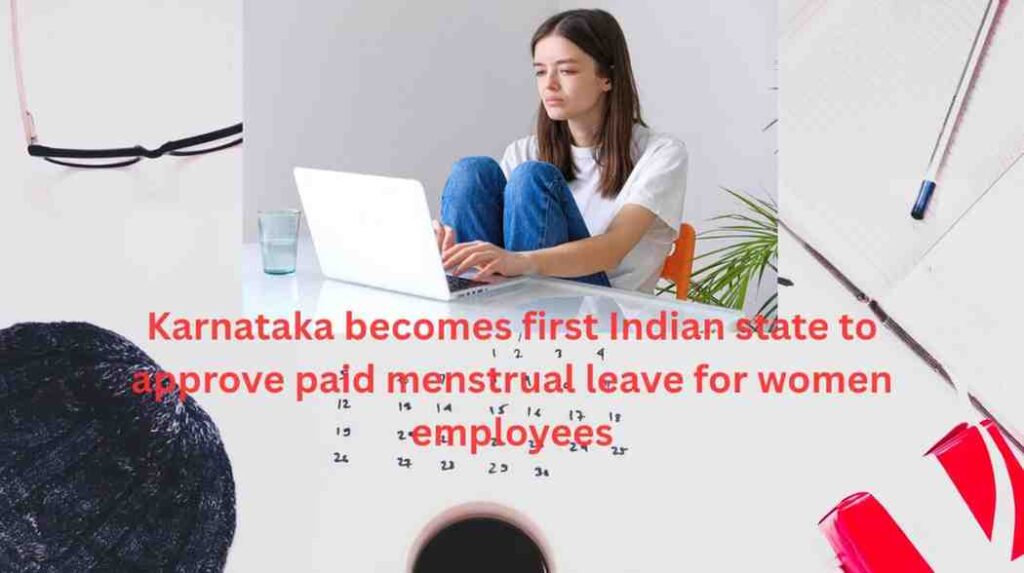Karnataka Becomes First Indian State to Approve Paid Menstrual Leave for Women Employees

In a pathbreaking decision that could redefine workplace equality in India, the Government of Karnataka has officially approved the Menstrual Leave Policy 2025, making it the first state in the country to extend one paid menstrual leave day every month to women employees across both government and private sectors.
This landmark policy reflects Karnataka’s growing commitment to women’s health, dignity, and inclusion at the workplace. It’s not just a symbolic move—it’s a bold step towards normalizing conversations around menstruation and ensuring that women don’t have to compromise their well-being for professional responsibilities.
A Comprehensive Policy for All Working Women
Unlike other states such as Odisha, Bihar, and Kerala, which have introduced menstrual leave provisions in select government departments or limited institutions, Karnataka’s policy takes a comprehensive and inclusive approach. The new rule applies to all working women—whether employed in government offices, private organizations, or industrial establishments.
The initiative follows detailed recommendations by a committee formed under the Karnataka Labour Department, which emphasized the need for workplace reforms that acknowledge biological realities while promoting equality and productivity. By granting a paid day off each month, the government aims to create a more empathetic and supportive work environment for women across all job categories.
Promoting Women’s Health and Workplace Equality
Health experts and gender advocates have long argued that menstrual pain and fatigue are genuine health concerns that deserve recognition. For many women, managing work commitments during their menstrual cycle can be challenging—especially in workplaces with rigid attendance policies and limited flexibility.
Karnataka’s move is being widely praised as a progressive policy that prioritizes women’s physical and mental health. By institutionalizing menstrual leave, the government is sending a strong message: women’s health is not a taboo topic but a vital part of workplace wellness and equality.
A Positive Response from Labour Unions and Experts
The All-India Trade Union Congress (AITUC) – Karnataka Committee has welcomed the decision wholeheartedly, calling it a “revolutionary and much-needed reform.” The committee noted that this policy empowers millions of women in both urban and rural sectors, many of whom have silently endured discomfort during work hours for years.
Experts also believe the ripple effects of this decision could be significant. The policy could inspire private organizations, startups, and multinational companies across India to adopt similar employee-friendly measures. It may even encourage other state governments to re-evaluate their labour policies through a gender-sensitive lens.
Setting a Benchmark for Gender-Inclusive Work Culture
This milestone decision from Karnataka goes beyond administrative reform—it represents a cultural shift. For decades, menstruation has been treated as a private or uncomfortable subject, rarely discussed openly in professional spaces. By bringing menstrual leave into official policy, the state is helping to normalize conversations about women’s health and break the stigma that often surrounds it.
The Menstrual Leave Policy 2025 is not just about a day’s rest—it’s about recognition, respect, and rights. It acknowledges that every employee deserves a workplace that understands human needs, regardless of gender.
Looking Ahead
As Karnataka takes the lead, many are watching to see if other states and corporations follow suit. With increasing awareness around mental and physical wellness in the post-pandemic era, the concept of menstrual leave could become an integral part of future workplace policies nationwide.
For now, Karnataka’s decision stands as a beacon of progress—a state that chose compassion and equality over convention, setting a new standard for the rest of India to follow.